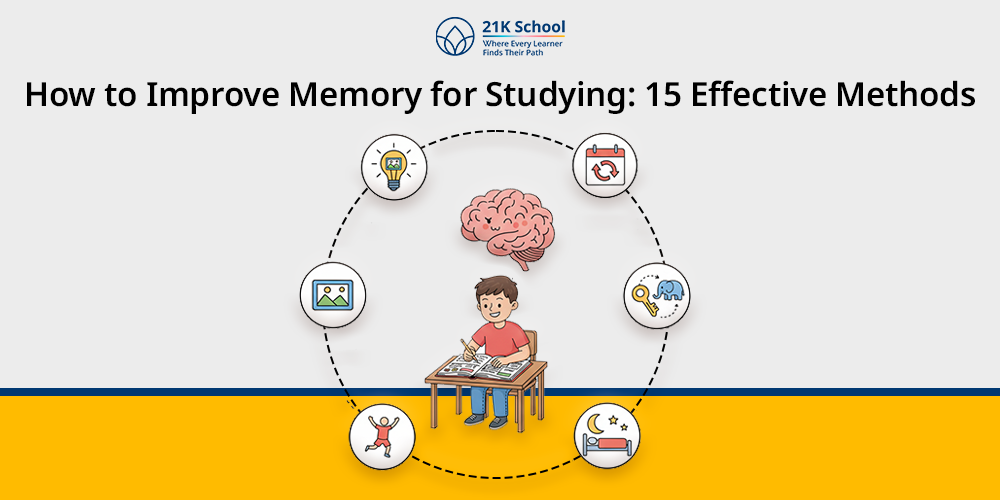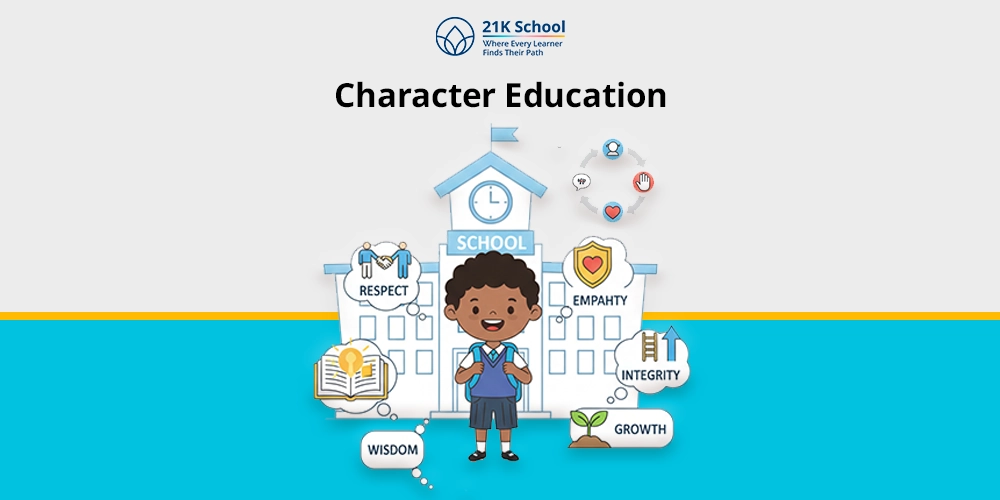
Do you struggle to remember any concepts/do you often get things wrong? Here is what you can do.
Some students struggle to memorise concepts or quickly forget them. So they get less marks for memory than for academic performance. Some strategies and ways for students to overcome memory loss are necessary.
Daily exercise/yoga, proper sleep, good food diet, meditation etc help students retain knowledge to study and get results. A good memory is useful in education and in everyday life.
Contents
- 1 15 Memory Tips for Studying
- 1.1 1. Active Recall
- 1.2 2. Spaced Repetition
- 1.3 3. Practice Retrieval
- 1.4 4. Daily Exercise
- 1.5 5. Teaching Somebody Else
- 1.6 6. Proper Sleep
- 1.7 7. Use Mnemonic Techniques
- 1.8 8. Chunking
- 1.9 9. Healthy Diet
- 1.10 10. Stress Control
- 1.11 11. Regular Writing
- 1.12 12. Meditation
- 1.13 13. Story Telling
- 1.14 14. Fixed Routine
- 1.15 15. Reading Books
- 2 Concluding Thought
15 Memory Tips for Studying
Good habits and clever tricks make information stay longer in memory. Good memory retention is needed. Here are a few tips for memory improvement while studying.
1. Active Recall
Passive absorption is giving way to active recall by using actual information/practical knowledge in real life.
More broadly it teaches how to learn for life whether it be a professional skill or a hobby – by asking questions instead of surface review. So the brain has to remember harder – and build paths to recall faster later on.
2. Spaced Repetition
It slows down natural memory decay by distributing practice over time-like a brain processes information accumulated over time.
Such simple spacing is fine for Languages or History or just hobbies. So you get new information without getting old. Any concept is better learned and remembered when it is repeated.
3. Practice Retrieval
Retrieval practice goes beyond quizzes and mind-mapping . It’s a way of getting info out of memory.
In a broader sense it’s a mental exercise for problem-solving in any field from Science to History – how to deal with uncertainty and connect disparate ideas without constant reference materials.
4. Daily Exercise
Daily exercise helps children with memory and mental health. Walking or running or doing something else every day gives you something to focus on.
Also, exercise may lift your mood and memory during a busy day. Emotional intelligence and creativity were also developed as part of the cognitive development of children .
5. Teaching Somebody Else
Teaching others promotes student learning, allowing them to learn more broadly and develop teaching experience.
Broadly speaking, it is social learning as a giver/receiver in mentoring, discussions, online forums and embedded knowledge in cooperative learning environments.
6. Proper Sleep
Great sleep every night – especially when you learn something new. You sort them out and store them while you rest. All cognitive functions are based on it. Sleep disturbances affect mood, decision-making & innovation.
Better bedtime routines mean better grades as well as productivity and well-being.
7. Use Mnemonic Techniques
Find silly shortcuts like rhymes, acronyms or pictures to connect new facts to old ones. Since the brain processes all information by patterns it is easy to get the hard concept down.
In general, they’re just memory hacks for everyday navigation directions or names for imagination, for having fun with learning .
8. Chunking
By putting information into meaningful units, chunking expands working memory capacity the way experts put chessboards into patterns instead of pieces. Here students break difficult concepts down into smaller parts.
In general terms, this is an organisational strategy in project management / storytelling, to avoid overwhelm in information-heavy fields like data analysis / literature and in a data-saturated world.
9. Healthy Diet
Alternate fasting & healthy foods may lessen students stress , give more mental space for creative thinking & prevent cognitive decline in the long haul.
Good nutrition gives your brain energy and focus. Simple habit to fight tiredness & long-term stress for studying/health in general.
10. Stress Control
How to control stress so you can do exercises for mental clarity. Breathe deeply, take a break or do something fun to distract your mind from worry that blocks memory.
Less stress is equal to more focus & more new info saved. Try it daily for hard days, but also friendships & calm living!
11. Regular Writing
Write down notes or thoughts or summaries each day in your own words. Writing it down helps with processing and memory.
So you start recording growth in journals, emails, planning – it becomes part of your life. It is a process of reflective writing.
Explore memory games for kids .
12. Meditation
Meditation teaches present-moment awareness and thickens the prefrontal cortex for better attention/memory coding.
Daily meditation, yoga & breathing exercises increase reactivity, study endurance and mindfulness in class on decision making, leadership & spirituality.
13. Story Telling
Storytelling helps students to improve their learning outcomes by increasing memory power and thinking capacity.
More generally, this narrative framing applies to all subjects which make education interesting, memorable and which give rise to influential skills as well as to cultural contacts through human experience.
14. Fixed Routine
So a proper study routine helps with preparation, and a study schedule with breaks and sleep helps your brain get used to focusing. Habits make choices easier & progress more steady. It’s like having a way of getting stuff done at school or work, which makes your day reliable.
So, customisable schedules are very important for study, work, family life and the mental health of students as well.
15. Reading Books
New neural pathways for empathy , vocabulary and associative thinking are formed through reading.
Developing reading habits is more than reading books, it is a habit that connects historical wisdom to today’s problems, to new ideas and to isolation in the digital age.
Concluding Thought
Simple everyday strategies – active recall, spaced repetition, good habits like exercise, sleep, diet – do not need fancy tools / endless hours of studying to improve your memory.
With these effective memory tips you can remember concepts better and get better grades in exams too – or just deal with everyday life-work problems or personal growth.
Try one or two techniques today – and watch your brain get sharper & more reliable.


